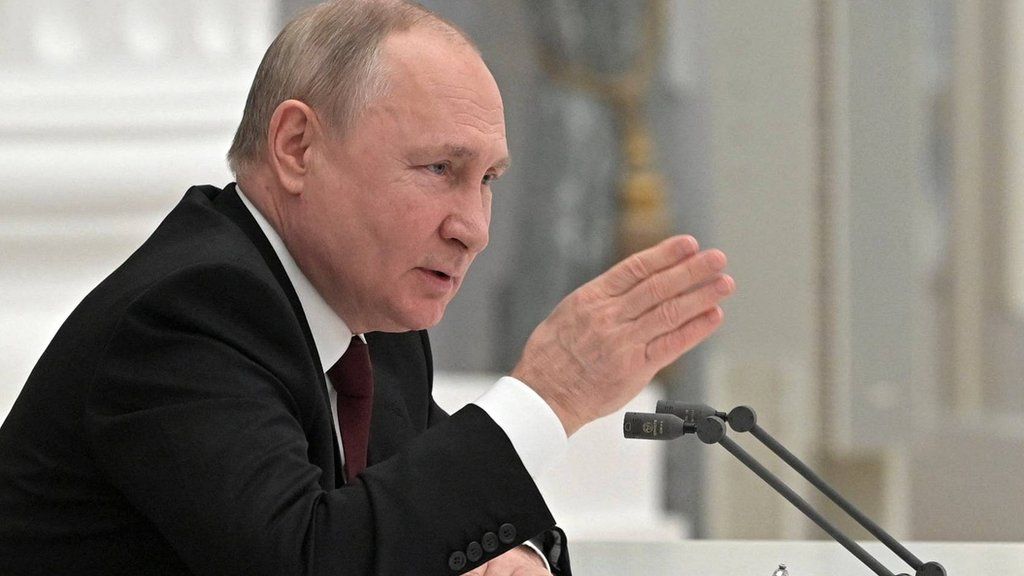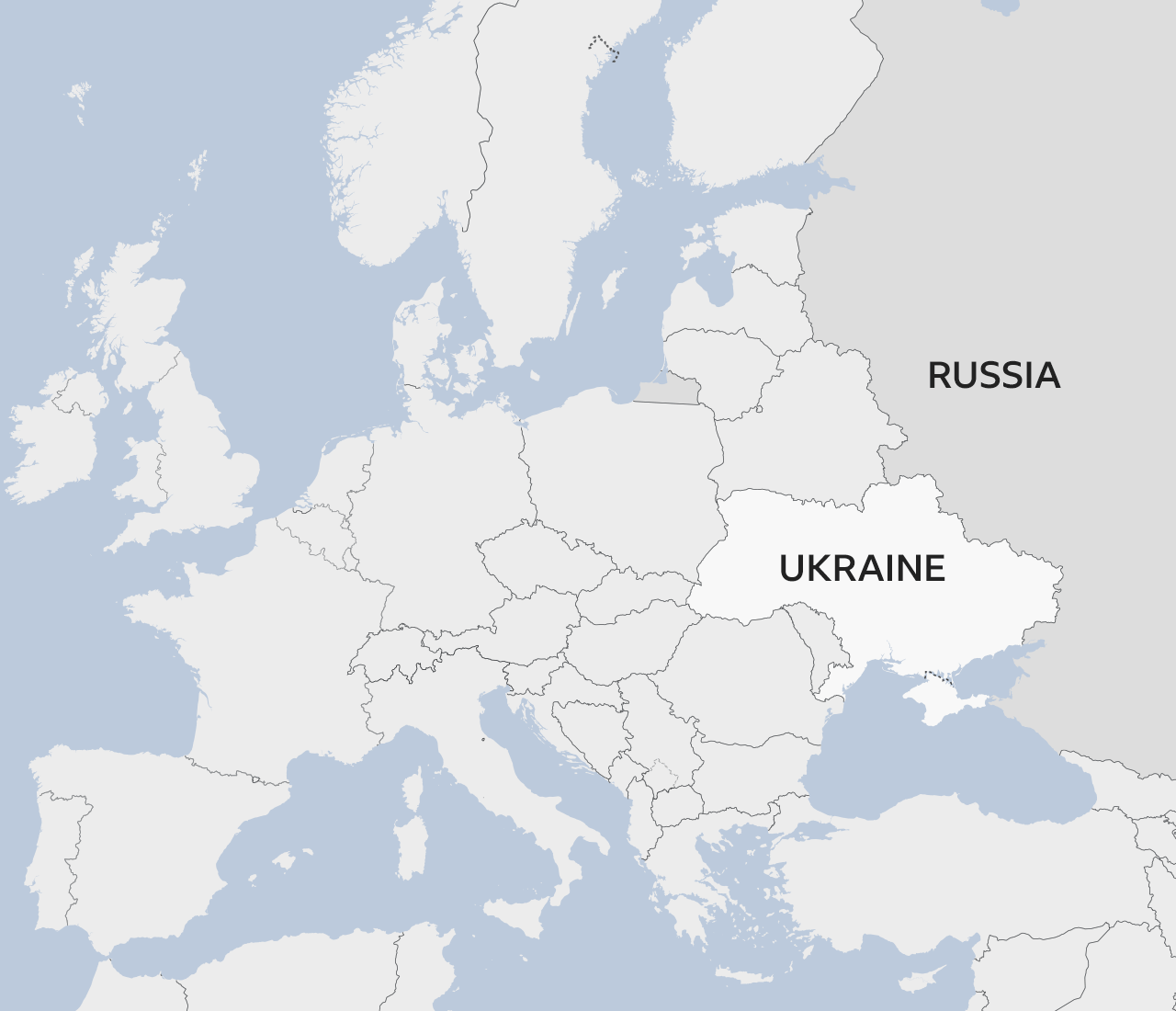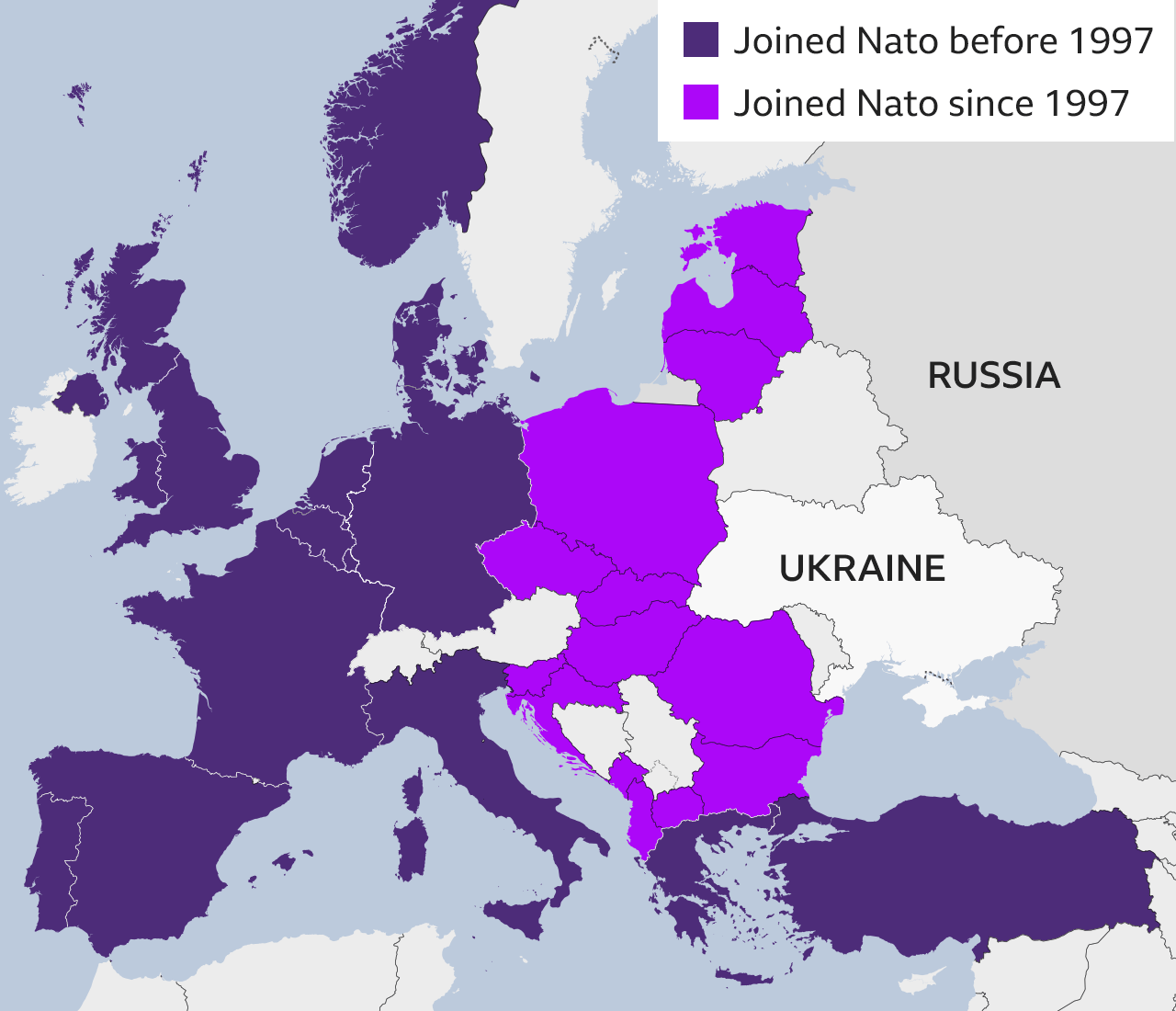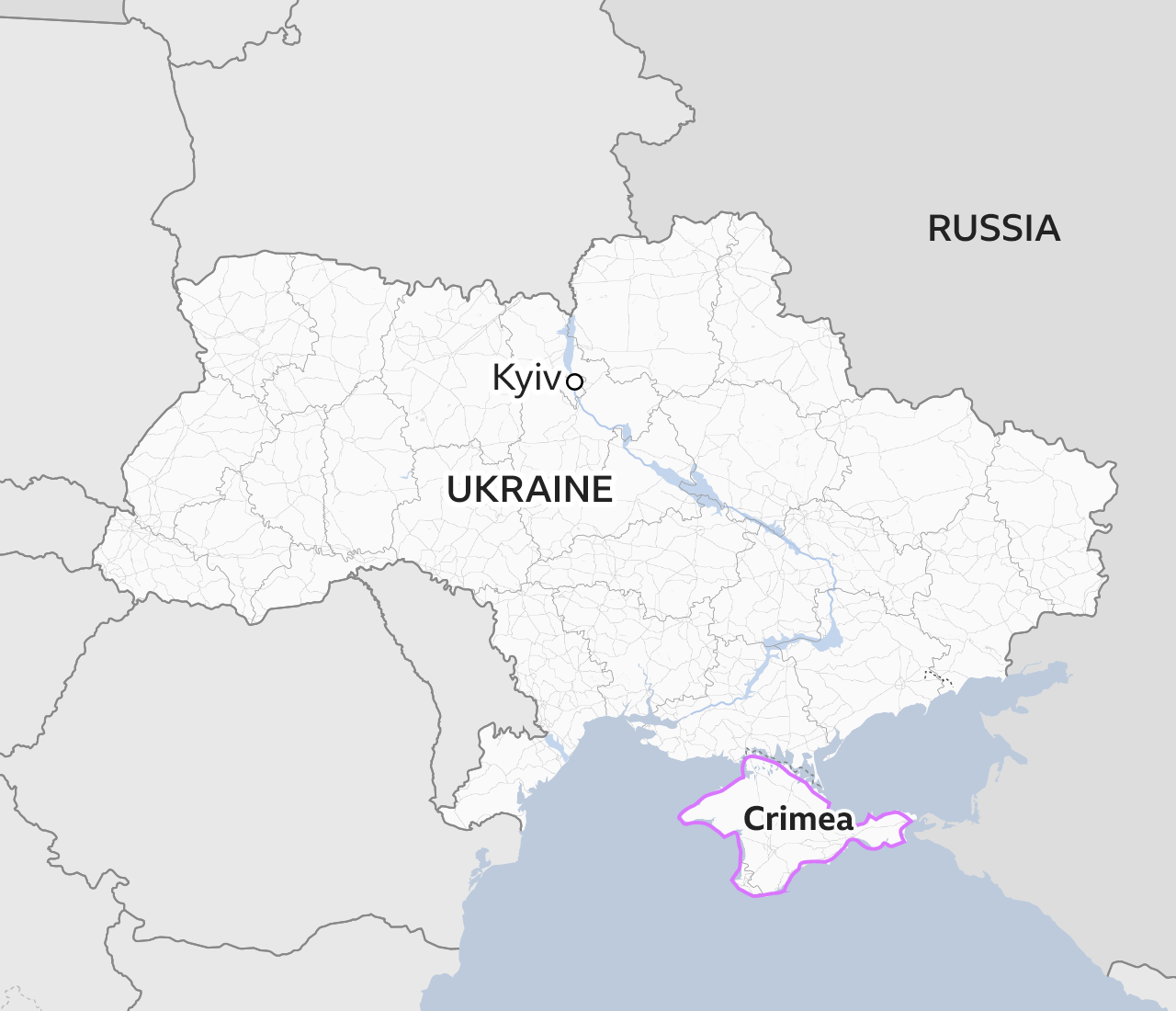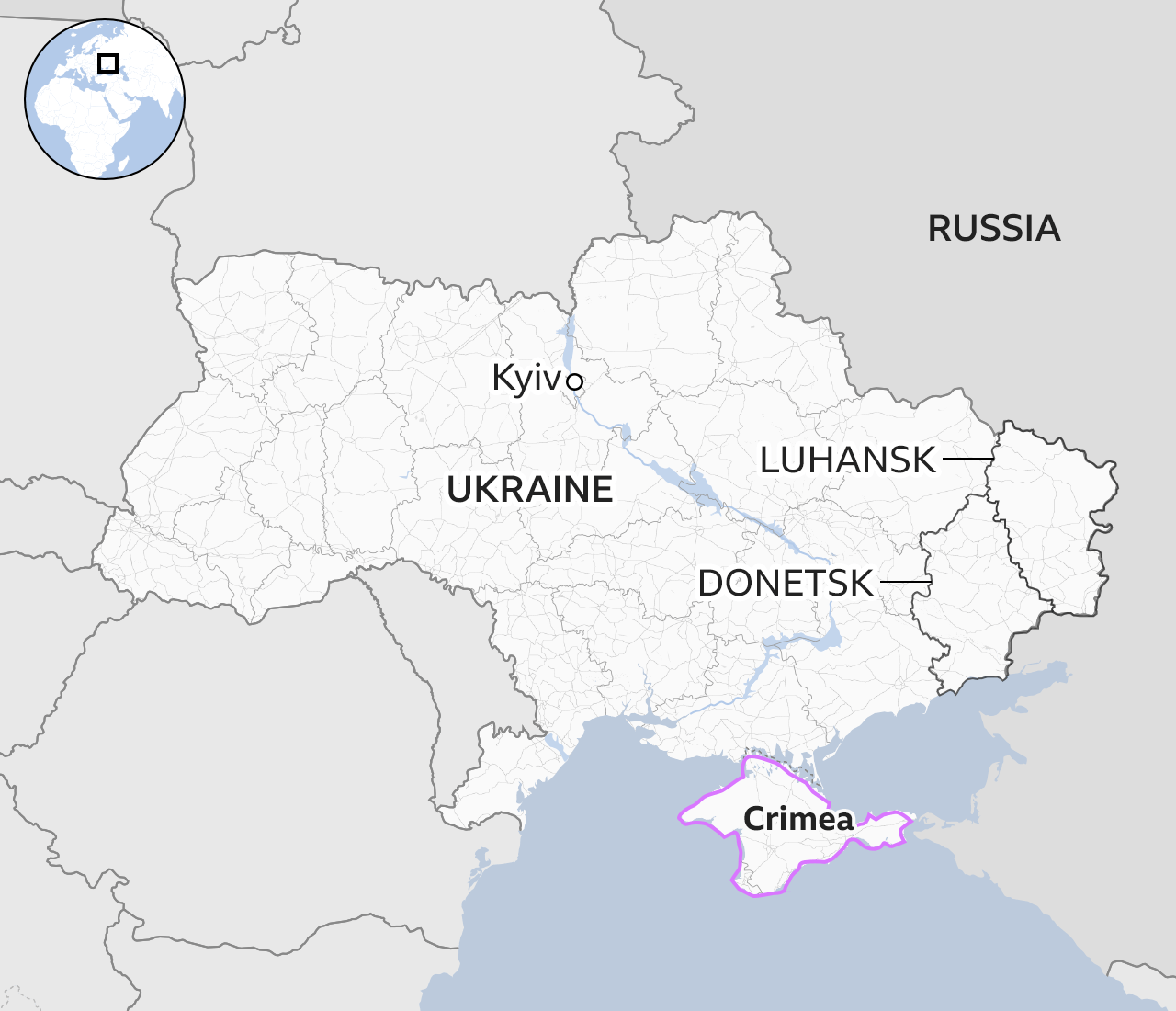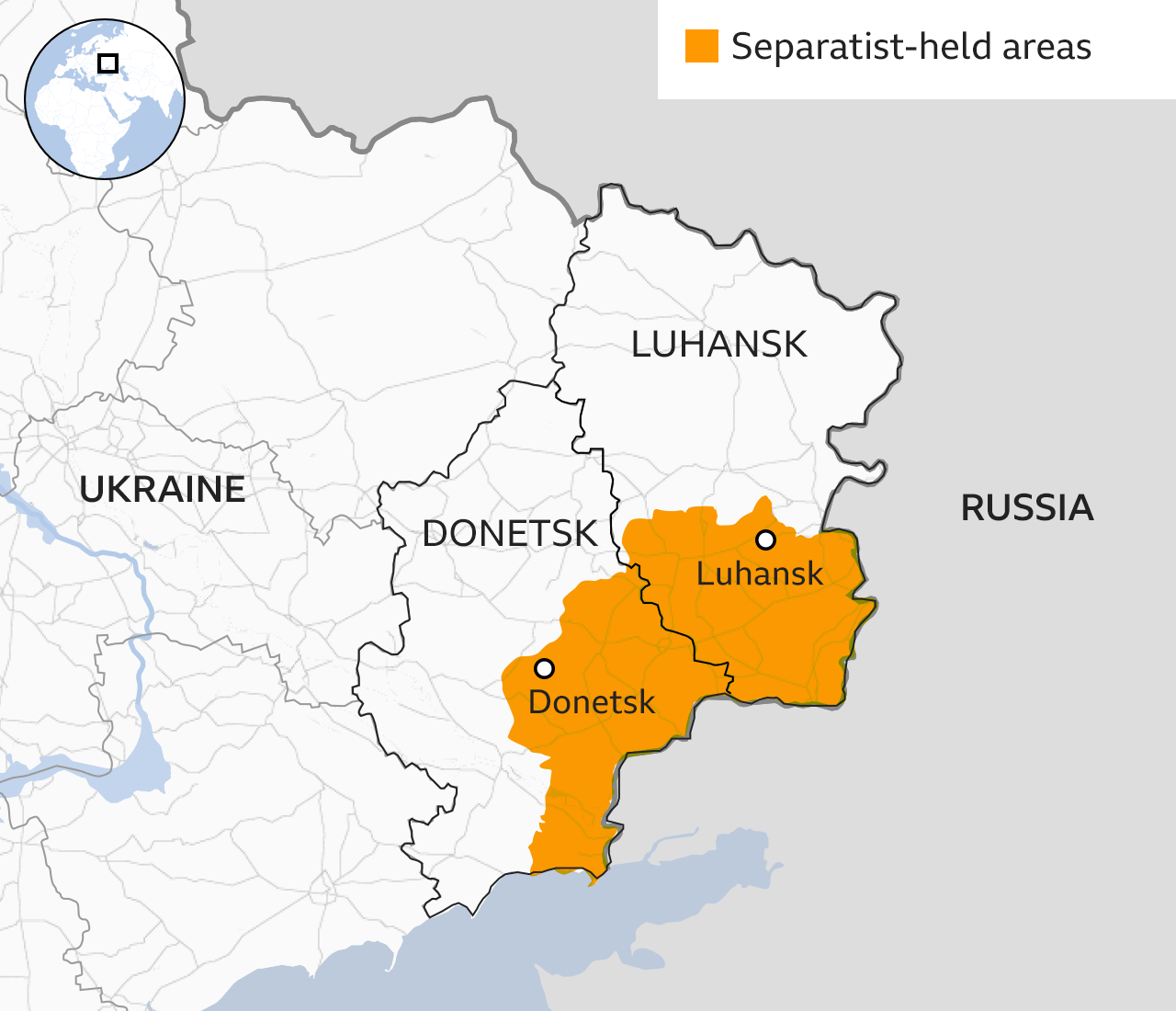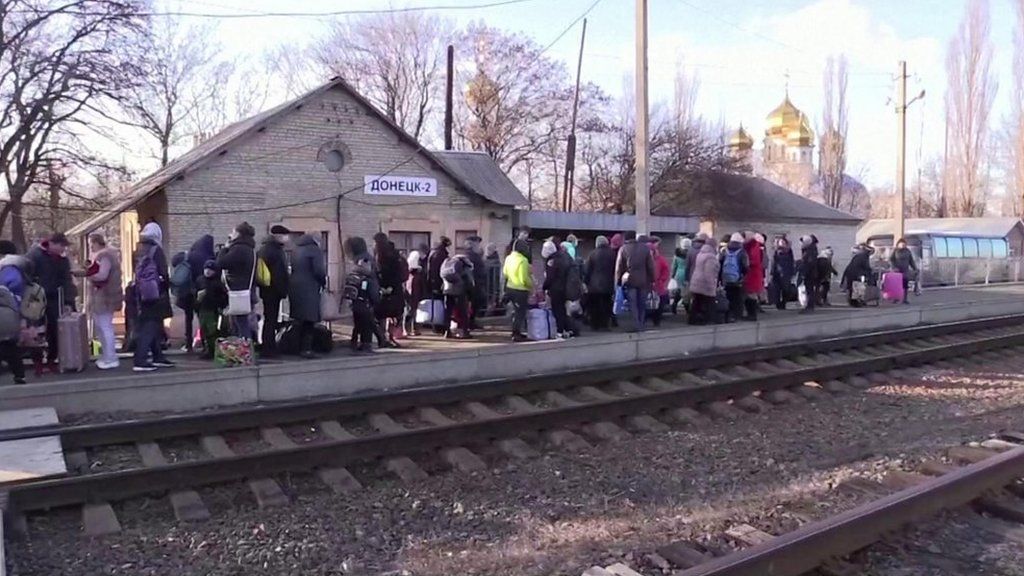In a national address, Ukraine’s president says his attempts to speak to Vladimir Putin were rejected.
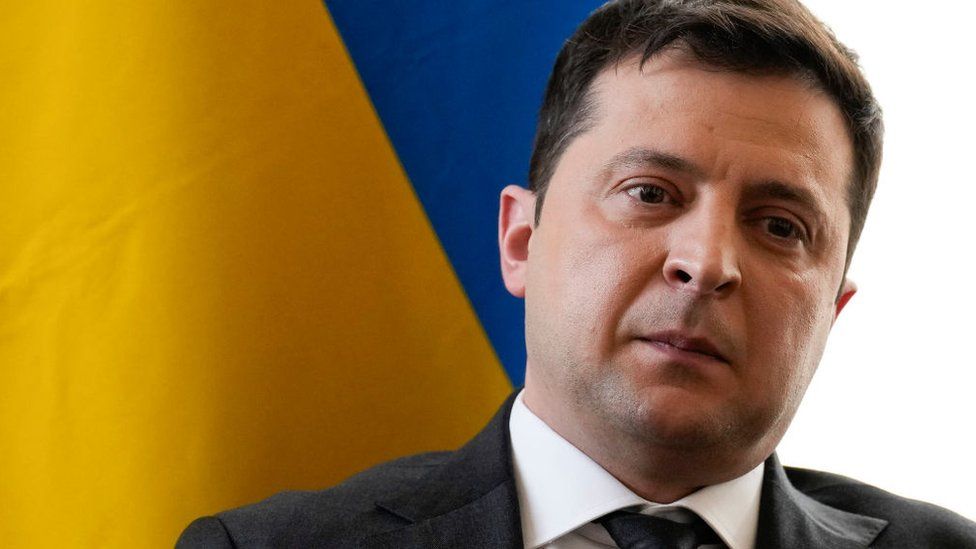
Image source, Getty Images
Ukraine’s President Volodymyr Zelensky has warned that Russia could start “a major war in Europe” any day now, and called on Russians to oppose it.
In a late-night address, he said he had unsuccessfully sought talks with Russian President Vladimir Putin.
“I initiated a telephone call with the president of the Russian federation. Result: silence,” Mr Zelensky said.
He said Russia had almost 200,000 troops and thousands of combat vehicles on Ukraine’s borders.
And switching from Ukrainian into Russian, Mr Zelensky made an emotional appeal to Russians to reject an attack, saying they were being lied to about Ukraine.
“Who can stop (the war)? People. These people are among you, I am sure,” he said.
Ukraine’s leader said his country was ready for a Russian attack, vowing: “If they [Russia] attack, if they try to take our county – our freedom, our lives, the lives of our children – we will be defending ourselves.”
“As you attack, it will be our faces you see, not our backs,” the Ukrainian president said.
It came as Russian troops, ordered into Ukraine’s two rebel-held regions, were reportedly edging closer to the border.
Moscow said the breakaway regions in eastern Ukraine had asked for military support.
Russia has now issued a civil aviation notice warning that it is closing virtually all of eastern Ukrainian airspace on the border with Russia, a monitoring group says.
The Open Source Intelligence Monitor says no “limit or ending time” has been provided so far by Moscow in its Notice to Airmen.
The United Nations Security Council will hold an emergency session at 02:30 GMT to discuss the deteriorating situation.
Ukraine has declared a state of emergency and told millions of its citizens living in Russia to return home. The 30-day emergency status allows authorities to adopt heightened security measures, including curfews.
This video can not be played
To play this video you need to enable JavaScript in your browser.
Western countries have announced a series of sanctions against Russia since it tore up a 2014-15 peace deal for eastern Ukraine and recognised the so-called people’s republics of Luhansk and Donetsk as independent states. Moscow’s claims that troops would be sent in for “peacekeeping” operations have been rejected by the UN secretary-general and decried as nonsense by the West.
Russia has been backing a bloody armed rebellion in eastern Ukraine for the past eight years. Some 14,000 people – including many civilians – have died in fighting since then.
The US has described Moscow’s actions as marking the beginning of an invasion. A senior US defence official on Wednesday said Russian troops were “uncoiled and ready to go”, with a large-scale invasion possible at any moment.
- EXPLAINER: What sanctions are being imposed on Russia?
- THE BASICS: What does Putin want?
- LIVE: Follow latest developments
Fears of a Russian attack have been rising for months, with more than 150,000 troops massed along Ukraine’s borders, according to US estimates.
Ukraine’s state of emergency was overwhelmingly approved by lawmakers on Wednesday, and is now in force nationwide.
It introduces personal document checks, blocks military reservists from leaving the country, bans mass gatherings and places restrictions on radio communication systems. Kyiv’s mayor said checkpoints would be set up in roads into the city, and access to government buildings would be restricted.
Ukraine earlier said it was ordering its citizens to leave Russia because “escalating Russian aggression” could limit consular assistance. As many as two million Ukrainians are believed to be living permanently in Russia and another one to two million more are thought to be staying there as migrant workers.
The military in Kyiv is also calling up all reservists aged 18 to 60 for a maximum of one year.
Ukraine’s latest measures came as it was targeted by a large-scale cyber-attack on Wednesday, affecting government websites and banks.
A minister told Interfax-Ukraine news agency that services for several Ukrainian institutions, including the health, security and foreign ministries, were taken offline in a denial of service (DDOS) attack. Such attacks aim to overwhelm websites by flooding a network with fake traffic and preventing it from communicating normally.
It is not clear if any Russian troops have yet crossed the border into Ukraine. However, US satellite imagery has highlighted several new troop and equipment deployments in western Russia, and more than 100 vehicles at an airfield in Belarus near Ukraine’s border.
This video can not be played
To play this video you need to enable JavaScript in your browser.
On Wednesday night, the Kremlin said Donetsk and Luhansk had asked Russian forces for protection, citing what it described as Ukrainian aggression.
Analysts have suggested the request could be a pretext for a full-scale invasion
Separatist leader Denis Pushilin last week accused Ukraine of planning an imminent offensive and ordered an evacuation of civilians.
Ukraine said no offensive had been planned and it later emerged Mr Pushilin’s order had been recorded two days earlier.
Russian President Vladimir Putin has said his country’s interests and security are non-negotiable while insisting that Moscow is “open for direct and honest dialogue”.
No further talks are planned, with France’s foreign minister and US Secretary of State Anthony Blinken both cancelling planned meetings with Russia’s Foreign Minister, Sergei Lavrov.
EU leaders have been invited for an extraordinary summit in Brussels on Thursday to discuss the crisis, while UN Secretary-General António Guterres warned that the world was facing a “moment of peril” as he called for de-escalation.
Ukrainian President Volodymyr Zelensky has said he will consider cutting off diplomatic ties with Russia altogether over the crisis.

Are you in Ukraine? Are you or your family affected? Email [email protected].
Please include a contact number if you are willing to speak to a BBC journalist. You can also get in touch in the following ways:
- WhatsApp: +44 7756 165803
- Tweet: @BBC_HaveYourSay
- Upload pictures or video
- Please read our terms & conditions and privacy policy
If you are reading this page and can’t see the form you will need to visit the mobile version of the BBC website to submit your question or comment or you can email us at [email protected]. Please
- 15 hours ago
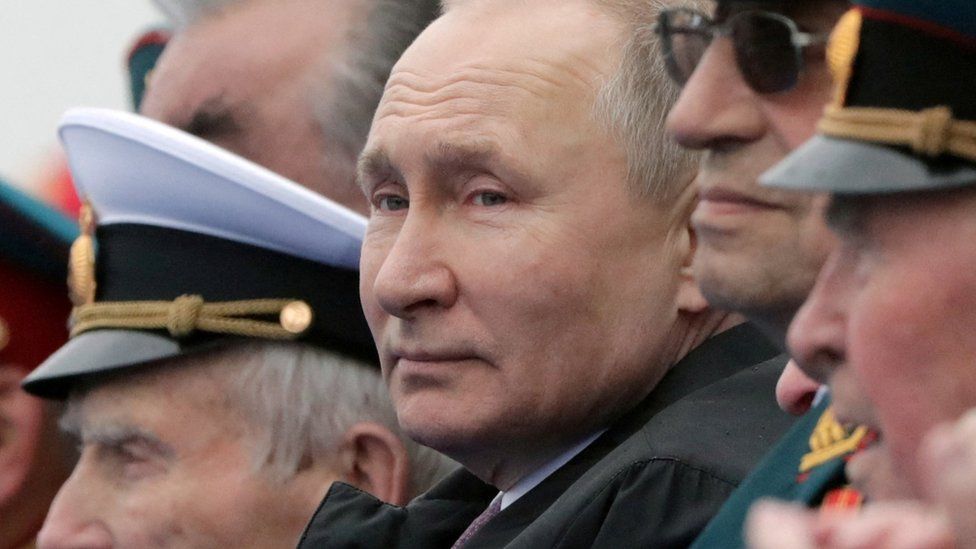
- 13 hours ago
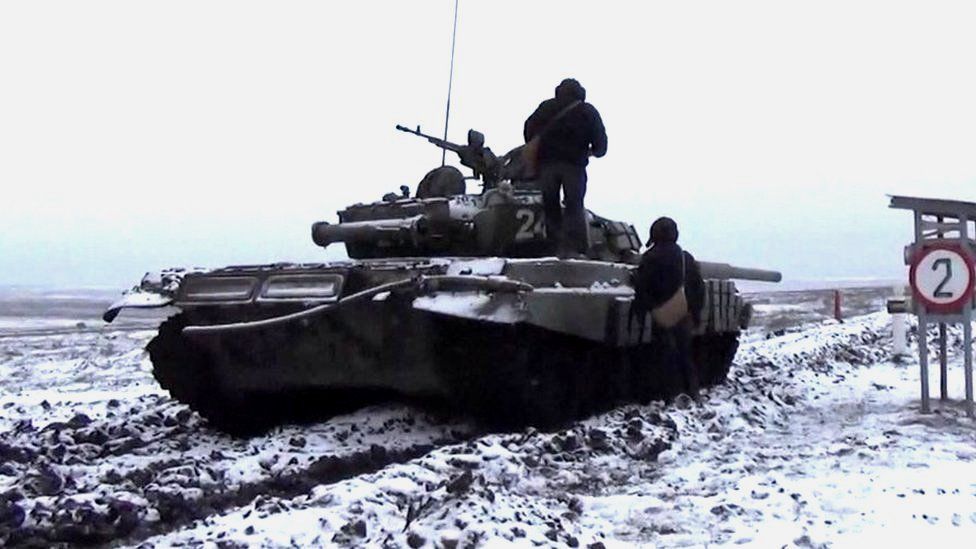
- 1 day ago
